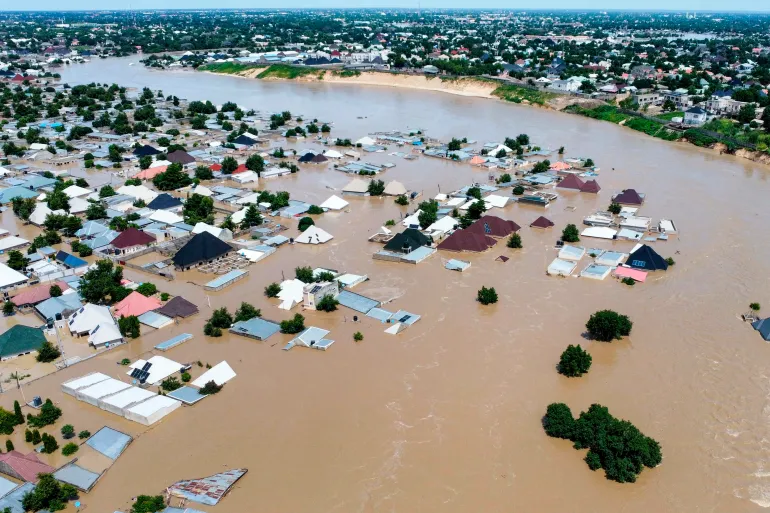A catastrophic dam collapse in northeast Nigeria has unleashed severe flooding, destroying thousands of homes and exacerbating an already dire humanitarian crisis in the region.
The flooding in Borno State has impacted approximately one million people, according to state governor Babagana Zulum. The disaster has stretched local resources to their limits as authorities struggle to rescue residents and provide temporary shelter.
Heavy rainfall on Tuesday caused a dam to overflow, resulting in widespread flooding. The deluge decimated a state-owned zoo, washing crocodiles and snakes into flooded communities, raising additional safety concerns for residents.
Eyewitnesses report a “stream of people” fleeing areas inundated by floodwaters. Civilians, equipped with limited diving gear, are searching the waters in desperate attempts to save lives.
“We’ve seen dead bodies arriving,” reported a local journalist, who also noted the successful rescue of baby twins from the floodwaters.
Vice President Kashim Shettima visited displaced persons on Tuesday evening, pledging to provide food, shelter, and medicine. However, reports indicate that as of Wednesday, few supplies had reached those in need.
Governor Zulum, who visited the Bakassi camp on Wednesday, told reporters that authorities were still assessing the damage. He confirmed that a quarter of Maiduguri, the state capital, had been flooded.
“You can see how water completely flooded the area, sewerages were completely flooded, that means waterborne diseases would be transmitted,” Zulum warned.
The flooding compounds a long-standing humanitarian crisis in Borno State, which has been grappling with a Boko Haram insurgency for over a decade. The rebellion has claimed more than 35,000 lives and displaced 2.6 million people in Nigeria’s north-east region.
The National Emergency Management Agency reports that floods in Nigeria have killed 229 people since the beginning of the year. This latest disaster in Borno State is being described as the worst flooding in the region in two decades.
This catastrophe highlights the increasing frequency and severity of extreme weather events in Nigeria. In 2022, the country experienced its worst flooding in recent times, which resulted in 600 deaths.
As rescue efforts continue, authorities face the daunting task of providing immediate relief while also addressing long-term challenges posed by climate change and ongoing regional conflicts.








